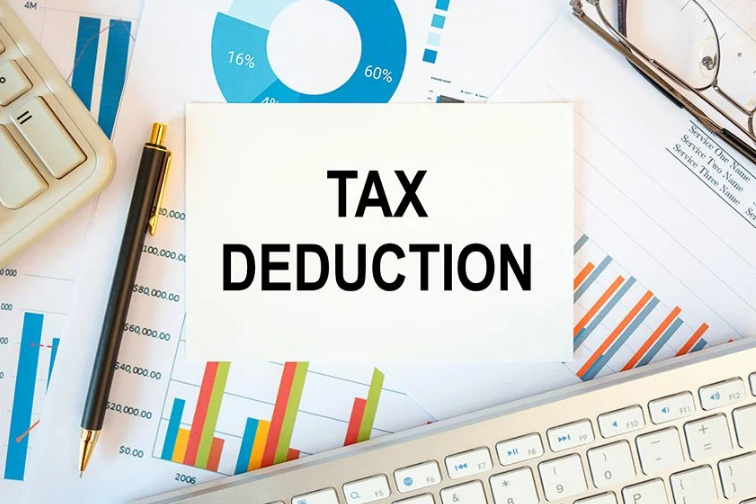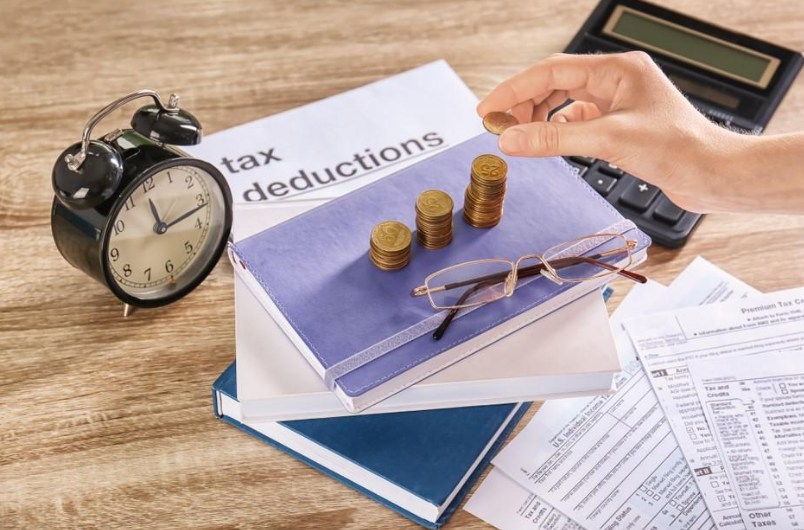Are you ready to take charge of your financial future and find the method that will lead you to genuine financial independence? Welcome to the world of tax deductions, where the keys to achieving financial independence are waiting for you! In this all-encompassing book, we set out on a journey to demystify the mystery that surrounds tax deductions, shedding light on the transforming potential that they have in terms of changing your financial destiny. This guide will serve as your path to unlocking the limitless options that are offered to you by tax deductions.
It will begin by establishing the foundation with essential ideas, then it will delve into the complexities of popular deductions, and finally it will reveal advanced tactics for optimizing your savings. We leave no stone unturned in our pursuit to equip you with the information and tools necessary to harness the fearsome power of tax deductions. Whether you are a rookie investor looking to comprehend the fundamentals or an experienced investor looking to refine your approach, we leave no stone unturned in our drive to empower you. In preparation for embarking on a journey of discovery, you should know that each deduction will serve as a stepping stone on the path to your ultimate goal, which is to achieve financial independence.
What Are Tax Deductions and How Do They Work?
Within your arsenal of financial tools, tax deductions serve as pillars of strength, exerting great ability to influence the geography of your financial situation. As their name suggests, tax deductions are a method of offsetting taxable income, which in turn reduces the amount of earnings that are subject to taxation. Essentially, a tax deduction is an expense that you are allowed to deduct from your total taxable income, which ultimately results in a decrease of the amount of taxes that you are required to pay at the end of the year. There is no possible way to overestimate the impact of this deduction mechanism, as it has the potential to significantly reduce your overall tax payment and even increase the amount of money that you could potentially get as a tax refund.
The process of deductions works by reducing the amount of income that is subject to taxation, which in turn reduces the amount of tax burden that is imposed by the government. This transforming process involves a variety of distinct aspects of expenditures, including but not limited to healthcare, education, homeownership, philanthropic initiatives, and business-related expenditures. You can create the framework for unlocking the full potential of deductions and charting a path toward increased tax savings and eventual financial independence if you have a fundamental understanding of how deductions function. To put it simply, gaining a knowledge of the complexities of deductions is the foundation upon which you will build your path toward achieving financial independence and freedom.
Exploring Common Deductions You May Be Eligible For
There are numerous tax deductions available to taxpayers, each designed to help you save money on your taxes. Some common deductions you may be eligible for include:
- Medical Expenses: You can deduct out-of-pocket medical expenses that exceed a certain percentage of your adjusted gross income (AGI).
- Mortgage Interest: Homeowners can deduct the interest paid on their mortgage loan, as well as property taxes paid.
- Charitable Contributions: Donations made to qualified charitable organizations are deductible, including cash donations, clothing, household goods, and appreciated assets.
- Educational Expenses: Students and their parents may be eligible for deductions for tuition, fees, and student loan interest.
- Business Expenses: Self-employed individuals can deduct expenses related to their business, such as office supplies, mileage, and professional fees.
By exploring common deductions, you can identify opportunities to lower your taxable income and maximize your tax savings.
Strategies for Maximizing Your Tax Deductions
Maximizing your tax deductions requires careful planning and strategic decision-making. Here are some strategies to help you make the most of your deductions:
- Bundle Deductions: Consider bundling deductions by timing expenses such as medical procedures, charitable contributions, and business expenses to maximize your deductions in a single tax year.
- Take Advantage of Above-the-Line Deductions: Above-the-line deductions, such as contributions to retirement accounts and health savings accounts (HSAs), can lower your adjusted gross income (AGI) and increase your eligibility for other deductions and tax credits.
- Keep Detailed Records: Maintain organized records of deductible expenses, including receipts, invoices, and documentation of charitable contributions, to substantiate your claims during tax season.
- Consult a Tax Professional: If you're unsure about which deductions you qualify for or how to maximize your tax savings, consider seeking advice from a qualified tax professional who can provide personalized guidance based on your individual financial situation.
By implementing these strategies, you can effectively lower your tax liability and keep more money in your pocket come tax time.
How to Keep Organized Records for Claiming Tax Deductions
Keeping organized records is essential for successfully claiming tax deductions. Here are some tips for maintaining organized records:
- Use a Dedicated System: Establish a dedicated system for organizing your financial documents, whether it's a physical filing cabinet or digital storage solution.
- Separate Personal and Business Expenses: Keep personal and business expenses separate to make it easier to identify and track deductible expenses for tax purposes.
- Document Everything: Keep detailed records of all deductible expenses, including receipts, invoices, bank statements, and mileage logs.
- Stay Up-to-Date: Regularly update your records to ensure that you have accurate and current information when it's time to file your taxes.
- Back Up Your Records: Backup your records regularly to protect against loss or damage, whether it's physical copies stored in a safe location or digital copies stored in the cloud.
By keeping organized records, you can streamline the tax filing process and ensure that you claim all eligible deductions to maximize your tax savings.
Tips for Successfully Claiming and Maximizing Your Tax Deductions
Successfully claiming and maximizing your tax deductions requires attention to detail and thorough documentation. Here are some tips to help you navigate the process:
- Start Early: Begin gathering and organizing your tax documents early in the year to avoid last-minute scrambling and ensure that you have everything you need to claim deductions.
- Double-Check Your Work: Review your tax return carefully before submitting it to ensure that you've claimed all eligible deductions and accurately reported your income and expenses.
- Seek Professional Help: If you're unsure about how to claim certain deductions or need assistance with complex tax issues, don't hesitate to seek help from a qualified tax professional.
- Stay Informed: Stay up-to-date on changes to tax laws and regulations that may impact your eligibility for deductions or affect the amount you can claim.
- Plan Ahead: Take advantage of tax planning opportunities throughout the year to strategically reduce your taxable income and maximize your tax savings.





